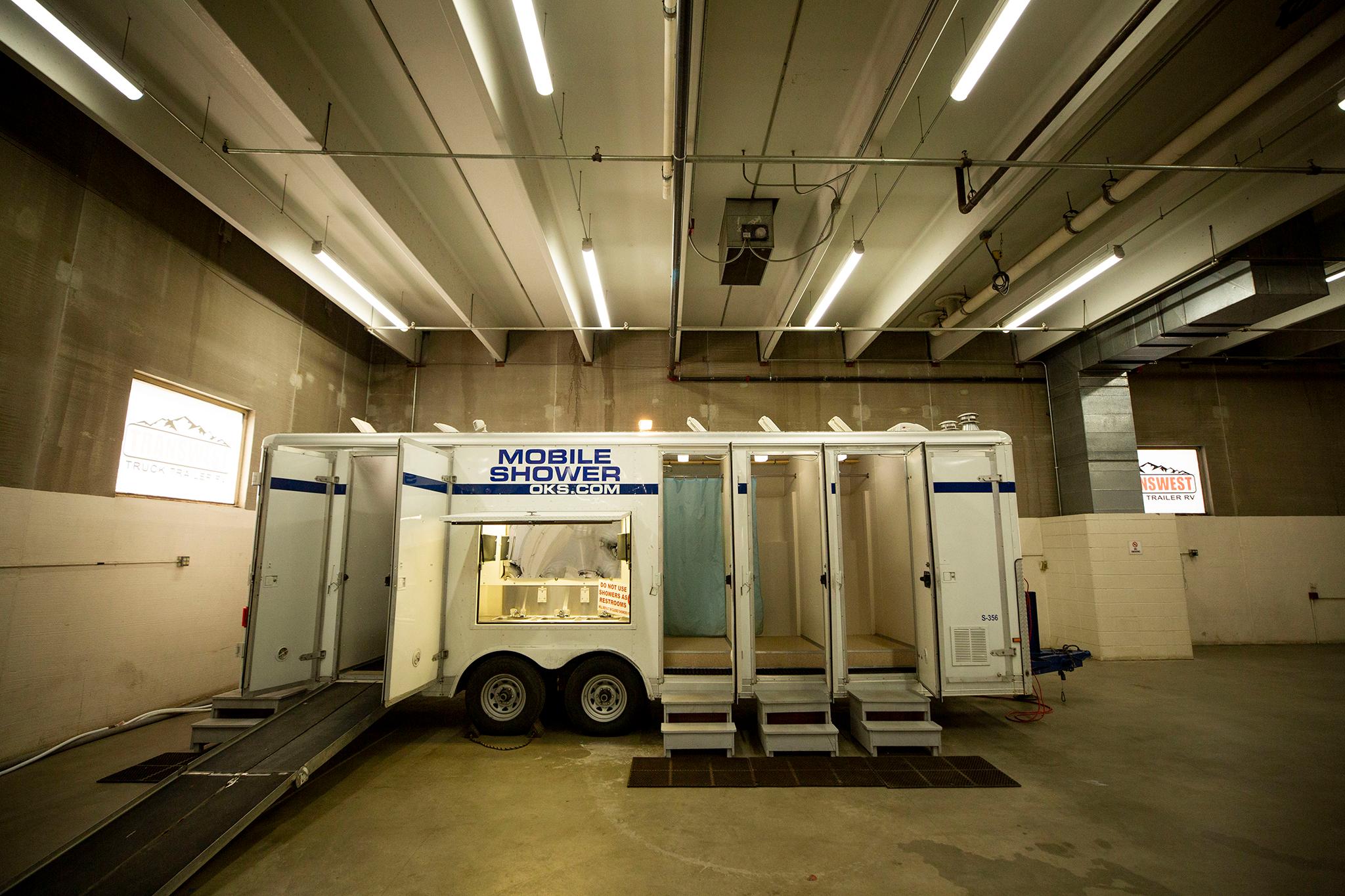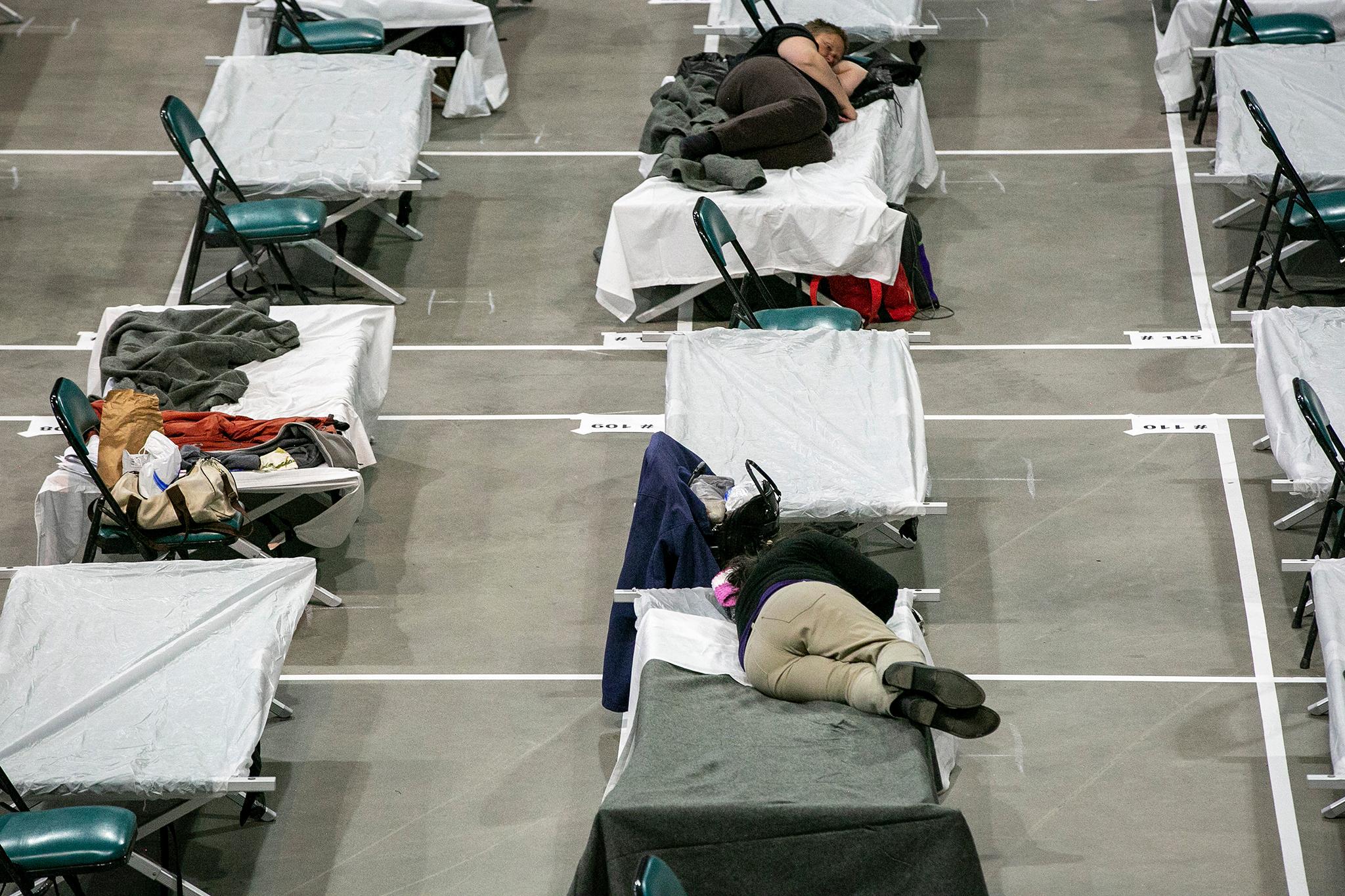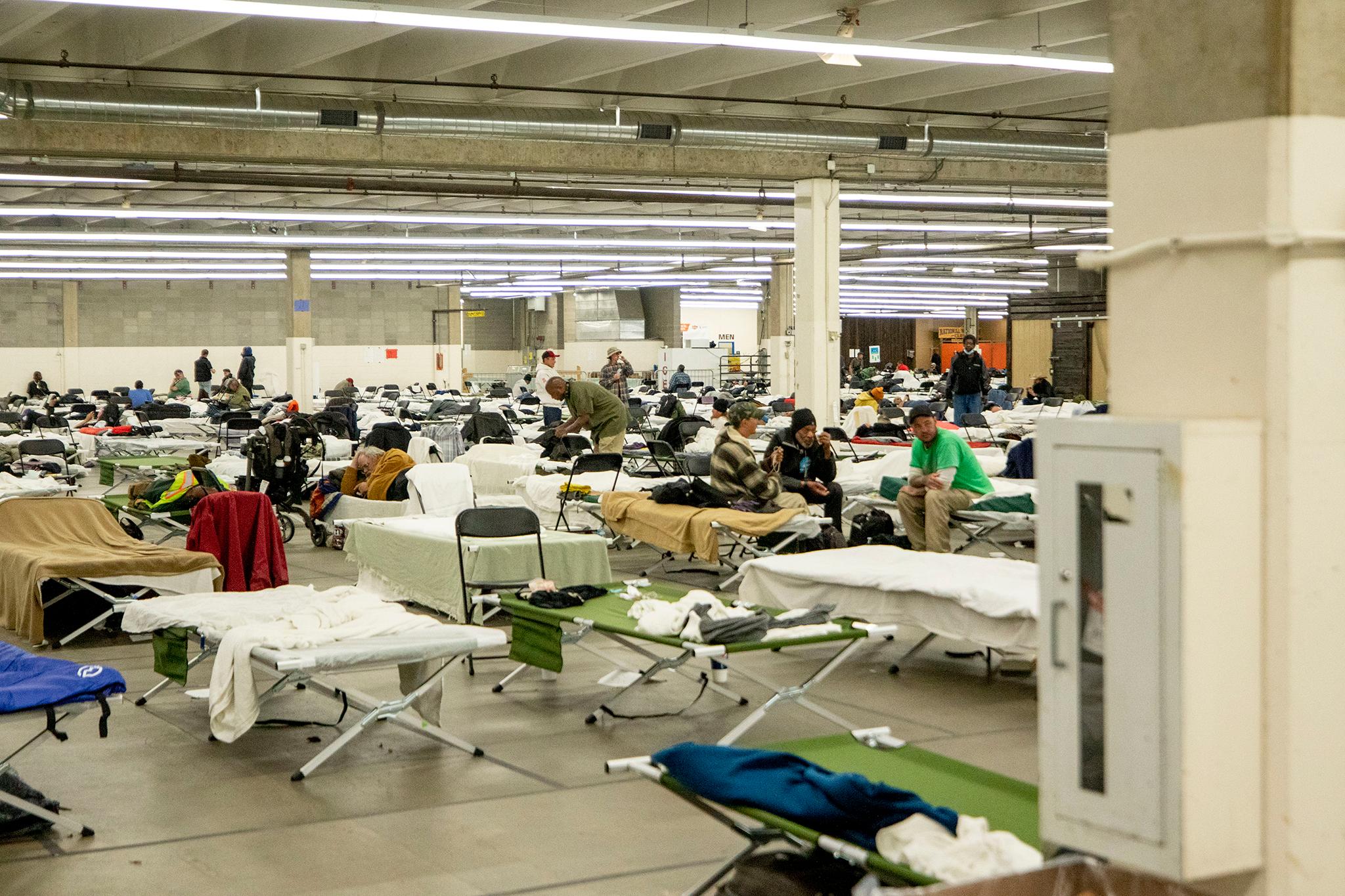Denver will pay a security company up to $4 million to oversee two massive shelters for people experiencing homelessness, raising concerns from community leaders and elected officials about privacy and safety.
On Monday, the city government contracted with California-based Allied Universal Security, a company with multiple contracts in the city -- and a history of employees beating people up at Union Station and Boston's North Station -- to patrol emergency shelters at the National Western Complex and Denver Coliseum.
The contract will fund 21 security guards, who aren't allowed to get physical with residents at either shelter, the agreement states. Kami Johle, director fo administration for Denver General Services, told City Council members Monday that "absolutely no weapons" will be carried by the guards. She characterized the security guards as "customer service even though they're in a uniform."
However, the responsibilities of Allied guards extend far beyond showing people where the bathroom is. According to the contract, the contractors will also check bags, support enforcement of shelter rules, patrol the area for drug and alcohol use, and guard areas from unauthorized entry. Guards will be posted around the shelter, including near the showers, the contract states.

National Western can house up to 600 men. The Denver Coliseum can hold up to 300 women.
Councilwomen Jamie Torres and Candi CdeBaca questioned the company's history, which includes a severe beating.
CdeBaca wondered why the government chose Allied, which is being sued after two of its guards, Taylor Taggart and Victor Diaz, pleaded guilty to charges stemming from the beating of local artist Raverro Stinnett in a Union Station bathroom. The lawsuit says Stinnett suffered a permanent brain injury.
"This is a case that was pretty high profile because of the permanent brain damage sustained," CdeBaca said, "and so it's hard for me to wrap my head around the city going with this provider knowing what happened in this case, even from an outsider's perspective."
Allied was the only company of 10 that could staff the shelters on a short timeline, Johle said, adding that she spoke "extensively" with Denver General Services chief security officer, George Hunt, about how to treat the unhoused residents. The guards, who Johle said underwent training to be sensitive to the population, are already working the jobs on an interim basis.

"We have been very pleased with their performance ... everyone has been very pleased with how they are performing, how they are relating to the residents," Johle said.
Nicole Tschetter, a spokesperson for shelter operator Denver Rescue Mission, told Denverite the Mission supports the city's decision.
"It's over the top," said Terese Howard with Denver Homeless Out Loud.
The advocate for unhoused Denverites said her members say the shelters are already overstaffed. In addition to security guards, Denver police officers patrol outside of the shelters.
"If you want to live in an uber-controlled environment, that could be nice for some people to have that sense of control," Howard said. "But if you want to live in an environment where you feel like you have a little bit more ability to walk and breathe without being monitored by staff, that's another question."
Bishop Jerry Demmer, president of the Greater Metro Denver Ministerial Alliance, urged council to spike the contract in a letter.
"We do not trust Allied Universal Security to fairly and respectfully protect our most vulnerable community members, especially with the heightened stress of the COVID-19 pandemic," Demmer wrote. "We respectfully request the Denver City Council to decline this contract and seek other agencies to perform security."
The council approved the contract by a margin of 11 to 2, with Councilwoman Amanda Sawyer and CdeBaca dissenting.
This article has been updated to correct a reporting error. George Hunt is chief security officer for the city's general services department, not chief security officer for Allied Universal.












